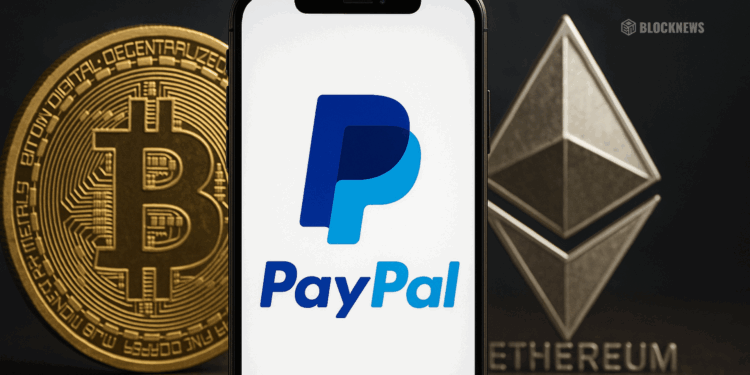- PayPal is rolling out P2P crypto transfers with BTC, ETH, PYUSD, and more.
- New “PayPal Links” feature lets users send payments easily via shareable links.
- Part of PayPal World, aimed at scaling global wallet and payment interoperability.
PayPal is taking another big leap into digital assets by allowing users to send Bitcoin (BTC), Ethereum (ETH), and its own stablecoin PYUSD directly through its P2P payment system. With over 400 million active accounts, this update could speed up mainstream adoption of crypto far beyond speculation or trading. The rollout begins in the U.S. with expansion planned for the U.K., Italy, and more countries later this year.
PayPal Links and Seamless Transfers
The new feature, called PayPal Links, lets users generate personalized payment links to share via text, email, or chat. On top of that, users can send crypto not just to PayPal and Venmo accounts but also to compatible external wallets — a move that aligns more with crypto’s original peer-to-peer ethos. Importantly, personal transfers won’t trigger 1099-K tax reporting, since they’re classified under friends-and-family payments.
Building a Global Payments Framework
Both PayPal Links and crypto transfers are part of “PayPal World,” the company’s interoperability push to connect wallets and payment systems worldwide. This is not PayPal’s first step into crypto: earlier this year, it launched “Pay with Crypto” for merchants and expanded support to tokens like Chainlink (LINK) and Solana (SOL). With PYUSD’s market cap nearing $1.3 billion, stablecoin adoption is also becoming central to PayPal’s strategy.
Why It Matters for Crypto Adoption
Peer-to-peer payments were a core vision of Bitcoin’s white paper, and PayPal’s expansion is a step closer to realizing that at scale. While PayPal remains a centralized intermediary, enabling external wallet transfers increases user control. With competitors like Kraken also rolling out crypto payment apps, and the World Bank highlighting stablecoin remittances as 90% cheaper, the trend toward crypto-powered payments is accelerating — though critics, including the BIS, still argue stablecoins act more like assets than currencies.














